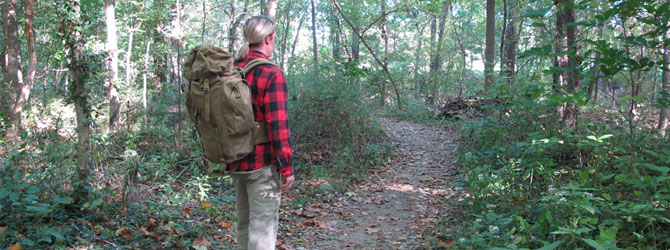
Over the past five years, I have seen the concept of bugging out escalate to the realm of ridiculousness. Much of this, in my opinion, has come from the commercialization of bug out bags, the glamorization of bug-out preps in the media and within entertainment circles, and, quite simply, blogging sites that promote bug out strategies as part of their down and dirty fear mongering to get you to purchase over-priced info-products or survival gear.
Circling back, bugging out has its place as I will explain in a moment. But for 99% of the disruptive events out there, my vote is to stay put and hunker down in the comfort of your home, surrounded by your preps.
Still, in spite of my personal feelings on the matter, we still need to be ready to evacuate at a moment’s notice. There are questions we must ask and answer in advance:
When should we bug out?
What should we take with us?
What if we have inadequate means of transportation to get away?
These are just a few of the questions that make up what I call the conundrum of bugging out.
Why Bug Out?
The main reason we need to be prepared to bug out is that at a moment’s notice, our homes could become unsafe. Starting out with the laundry list of predictable disasters such as hurricanes, wild fires, flash flood, winter storms, pandemic, and more, finding a safe haven out of harm’s way is just good, common sense.
Not so easy are the unpredictable disasters such as an earthquake, tornado, chemical spill, nuclear implosion and terrorist attacks. There are others but you get the point.
Regardless of where you live, the risk of a potential disaster will always be there and so we must be prepared to bug out. That said, bugging out should be a solution of last resort; something you do when harm is headed your way and it is no longer safe to stay at home.
Risk Assessment: When to Bug Out
Sorting out when to stay and when to leave is part of the risk assessment we should all do in advance. As a matter of fact, risk assessment should be a key component of our preps, and one that should be revisited periodically. This is especially true when it comes to sorting out whether to bug out or hunker down.
You might be asking what exactly do I mean by risk assessment. By way of explanation, businesses and insurance companies use the term risk management to describe “the identification, analysis, assessment, control, and avoidance, minimization, or elimination of unacceptable risks”. As a prepper, you will be ahead of the curve if you start out by doing the following:
Evaluate what types of disaster or crisis may occur in your area or in your life
Perform a walk-around inventory of your home in order to identify areas that would be damaged if there were a natural disaster or other disruptive event. Take steps to mitigate damage if a disaster should occur
Examine your financial resources and evaluate how long you could survive without an income from your job or other sources
Develop an evacuation plan in the event your home or your immediate area becomes unsafe (continue reading)

